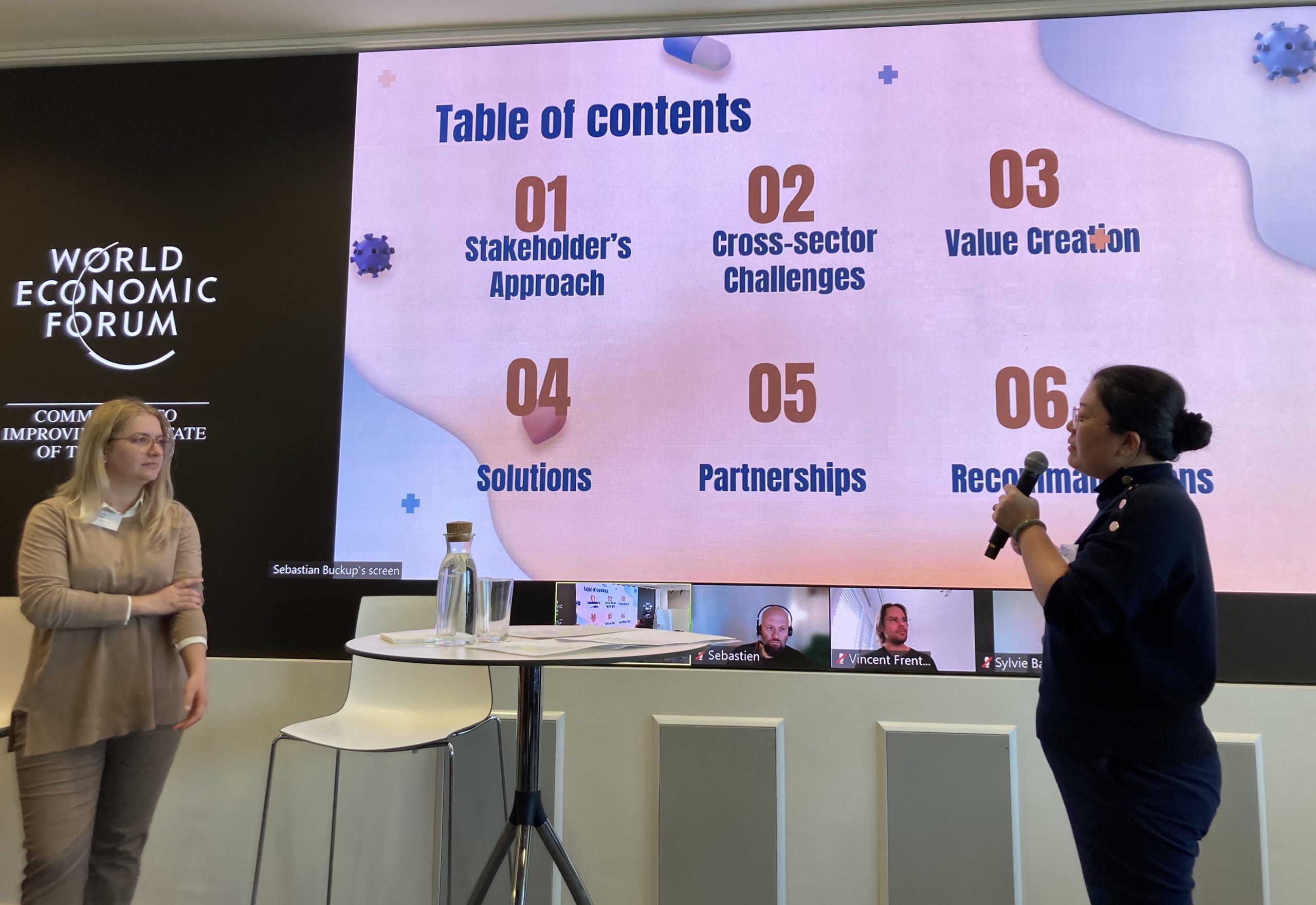During his course, Professor Sebastian Buckup led our EMBA students to reflect on the following questions:
- How is technology and technological change transforming economies and societies?
- How can business in particular drive shared and sustainable value creation in this “new normal”?
- How can companies partner across sectors and industries to solve “wicked problems”?
The context of the course is quite challenging:
- Exponential technological change promises shared prosperity and smart solutions to the world’s most intractable challenges; however, its exponential pace often overwhelms existing institutions, leaving societies exposed to uncontrolled risks and deprived of unprecedented opportunities.
- Meanwhile, growing geopolitical competition, a looming climate and biodiversity crisis, as well as rising polarization risk further deteriorating our ability to address these challenges, whilst increasing the propensity for new armed conflicts, cyber warfare and culture wars.
- In this “new normal” business not only faces existential pressures but also unique opportunities to rethink and redefine what it means to create value for its stakeholders and society at large with new business models and an expanding technological “toolkit”.
- However, many of the challenges we are facing today cannot be addressed within the boundaries of a single organization; the twin-reality of technological progress and socio-political distress calls for new forms of cooperation to build trust and combine capabilities.
I addition to its teaching, Sebastian Buckup organized what he called a “Practitioner Dialogue”. A whole afternoon of its module Cross Sector Partnerships – Creating Shared Value in the Fourth Industrial Revolution took place at the World Economic Forum.More than simply visiting one of the places where the future of the world and the economy is discussed, or even feeling the questions that animate the discussions among WEF members, our 27 students had the opportunity to meet:
– Filipe Beato, Centre for Cybersecurity
– Maria Basso, Advanced Manufacturing

– And Hubert Halopé, Platform Curator, Artificial Intelligence

The main topics were about cross sector partnerships and challenges in each of these fields. The discussion between the students and the speakers ranged from value creation to technologies and to stakeholder management.
As Ryo Shimada, one of our students says: “It was a great opportunity to obtain deeper insights into various industries all at once, in terms of value creation and future forecasting. Through this visit, we were able to better understand the importance of the topics that WEF addresses on the web. Furthermore, as EMBA students, we understood and learned the interdependency and complexity of the world today.”

That’s exactly what we aim for through confronting our students with the rich local ecosystem. That’s what we call the Geneva Advantage.



